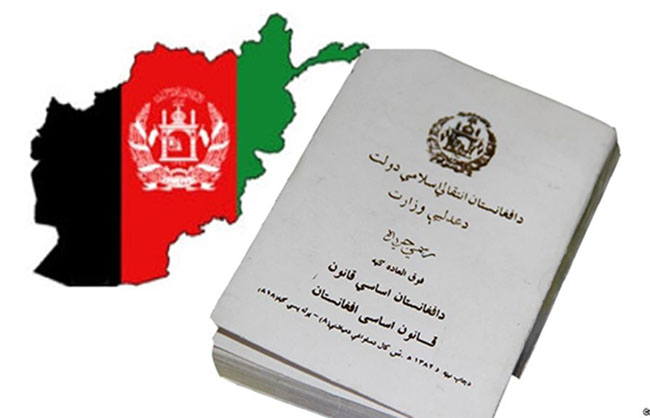According to a global study about the rule of law which carried out by the World Justice Project (WJP) in 113 coun¬tries, Afghanistan ranked 111th—ahead of only Cambodia and Venezuela. The rankings were determined on the basis of nine factors, including constraints on government powers, absence of corruption, open government, fundamental rights, order and security, regulatory enforcement, civil justice and criminal justice. However,the study focused on large cities while the rural residents have less access to the justice system rather than urban citizens. On the other hand, despite the widespread acceptance of Islamic law in Afghanistan, traditional practices always override both Islamic law and general law.In public universities, the legal education has been split into two faculties—one for law and one for Shari’a law. Since 2001, the number of law schools has increased and the number of law school graduates has also seen a rise. However, the teaching methods focus on rote review of the theoretical aspects of law, leaving students without the capacity to express thoughts, legal opinions, and conclusions; all practical skills they would require to become effective lawyers. In addition, the critical skill of legal writing, the primary way that information is distributed and recorded in courts and to and from lawyers, has been largely left out of legal education, until recently.Anyway, both laws are enacted to ensure justice, and protect the rights of citizens in a country. In fact,it is the rule of law that draws a distinction between human societies and wildlife, and provides a safe environment for people to live in. Laws on paper and without rule can never help societies. Based on reports, flaws and loopholes in Afghan laws, especially the Constitution, have also contributed to their increased violations. Some ambiguities and deficiencies in the constitution and other laws have given the transgressors a window to enjoy impunity, and have led to the blatant and rampant corruption in the judicial and justice institutions, where it has practically become a way of life. The main victims of the violations of the constitution and other laws are the poor Afghans, who no longer can tolerate the trend. National and international conventions have been widely violated in climate of impunity and frequent failure to investigate cases and bring those suspected of criminal responsibility to justice. It is said that 161 out of the total 162 articles of the Constitution have been contravened over the past few years; the only article which has not been violated so far is Article 21 of the Constitution that reads, “Kabul shall be the capital of Afghanistan”. From human rights defenders,politicians, women activists, businessmen to a simple shopkeeper frequently confronted threats by known and unknown actors. Women participating in public life are at risk of violence than men because of different social reasons but violence against women are under-reported in Afghanistan due to insecurity, lack of a functioning government or judiciary, and traditional practices which combined to discourage victims and their families from reporting violence. The government committed to take practical steps to improve women’s participation in governance but not succeeded as expected.Other issue is lack of legal awareness, for example:The Afghan Labor Law which is recognized as one of very standard law to protect workers from discrimination and children from forced labor practices are not well known among Afghan citizens at the national or provincial levels. This is the important responsibilities of MoLSAMD to provide jobs and monitor governmental and non-governmental organizations to strengthen understanding, awareness, implementation, and enforcement of the all laws in Afghanistan. The Labor Law Guarantees citizens the right to work and receive fair treatment, equitable pay, pensions, and health and safety in the work place but Afghanistan is one most exploiting, unemployed and misemployed countries in the world.Generally, the grow of insecurity and criminal activity negatively affected the culture of lawlessness and impunity across the country. Taliban and Daesh terrorist groups successively attack to destroy the markets and kill innocent civilians. Thus, poverty criminal kidnap businessmen and burgle homes but government failed to take any fundamental measures. As result, the critical conditions intensified by further investment outflow, brain drain and increasing unemployment. However, Afghan government emphasize that they would use all means available against the terrorist group in reaction to those brutal attacks and recently created some hopes with newly approved Kabul security strategy. Finally, experts believe that the violation of laws in a massive scale underlines the need to convene the Constitutional Loya Jirga, and address all the existing flaws. Additionally, for the justice and equal implementation of laws, the law enforcement agencies should be strengthened, and become more independent because only law amendment cannot suffice. Howsoever,justice cannot be ensured unless there is rule of law. Afghans can no longer endure laws which are only meant to be enforced on the indigent, and which provide for the bribery of law enforcement agencies, and cannot help ensure justice. Luckily, most of new age group haverealized the risks to tolerate worsening conditions of lawlessness, discrimination, violence, hatred and incompetency anymore. It is proven when the rule of law disappears we are ruled by the criminals and corrupt men. The more we tolerate lawlessness, the more we repress.It is never acceptable that the law can be used to justify tragedy, to keep things as they are, to make us abandon our ideas of a different world. Law is the path of liberty, and must open the pathway to progress for everyone.
Home » Opinion » A Glance at the Rule of Law in Afghanistan
A Glance at the Rule of Law in Afghanistan
| Mohammad Zahir Akbari

